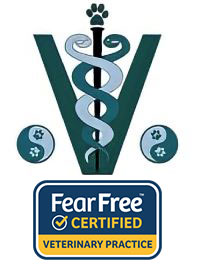Library
-
This handout explains post-vaccination sarcomas (also called injection-site sarcomas) in cats. They are a rare consequence of vaccine injections (and other drugs or materials) that can cause a very aggressive form of cancer at the site of the injection. The incidence of this condition, as well as precautions you and your veterinarian can take, are highlighted.
-
Potassium salts are given by mouth or an injection and are used on and off label to treat low blood potassium levels. Common side effects include nausea or discomfort. Do not use in pets that have high potassium levels, urination problems, tissue damage, uncontrolled Addison’s disease, gastrointestinal movement problems, or dehydration. If a negative reaction occurs, please call your veterinary office.
-
Povidone iodine topical (brand names Vetadine®, Poviderm®, Povidine®, others) is a topical antiseptic used on the skin prior to surgery and in first aid treatments for cats and dogs. It has been used in aquatic species and reptiles to treat fungal infections and wounds. Povidone iodine topical comes in liquid solution, gel, ointment, scrub, shampoo, and spray forms.
-
Feline poxvirus is a relative of the human smallpox virus seen mainly in Asia, Europe, and England. It causes skin lesions around the head, neck, and forelimbs, such as ulcerations, scabs, or abscesses. Cats often recover on their own with no further symptoms unless they are immunocompromised. There is no specific treatment or vaccine. Antibiotics may be used to control secondary infections. The virus can be transmitted to humans but can be significantly reduced by basic hygiene precautions.
-
Poxviruses can infect many species of birds, and each species of bird may have its own unique species of poxvirus. This handout explains three forms of the virus: cutaneous, diphtheroid, and septicaemic. Each of these forms has distinct clinical signs. Diagnosis, treatment, and ways to minimize the risk of infection in your bird are explained.
-
Pradofloxacin (brand name Veraflox®) is an antimicrobial medication used to treat bacterial infections. It is used to treat skin, urinary tract, and respiratory tract infections in cats. Pradofloxacin is approved for use in dogs in certain countries. It is used "off label" or "extra label" to treat other types of infections in cats and some types of infections in dogs.
-
The most common conditions affecting pet prairie dogs are: obesity, dental problems, cardiac disease and intestinal parasites. Regular scheduled veterinary examinations will be of great benefit to help discover problems or diseases before they cause a critical illness.
-
Like rabbits and guinea pigs, prairie dogs require a diet high in fiber. As they are hind-gut fermenters, they need alfalfa up to one year of age and Timothy hay after one year of age plus a high quality prairie dog pellet. Treats should be kept to a bare minimum as prairie dogs are prone to obesity.
-
In the wild, prairie dogs burrow in the ground and make tunnels. Indoor caging must be long enough and deep enough whereby the pet has a chance to dig and make a borrow. Boxes and tubes large enough to crawl through make excellent additions to the cage.
-
Praziquantel is given on and off label and by mouth or injection to treat various internal parasites in cats, dogs, small mammals, birds, reptiles, and large animals. Do not use in pets that are allergic to it, in puppies less than 3 weeks old, or kittens less than 6 weeks old.


